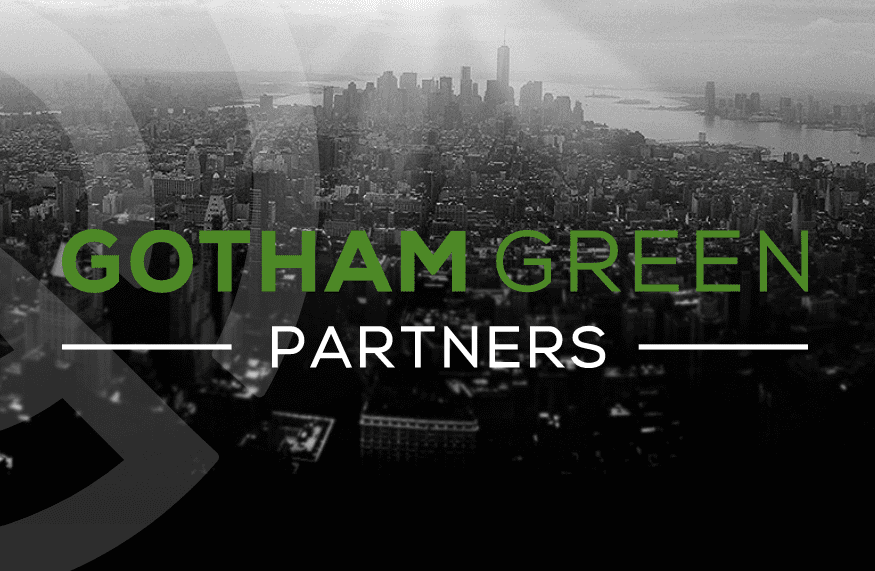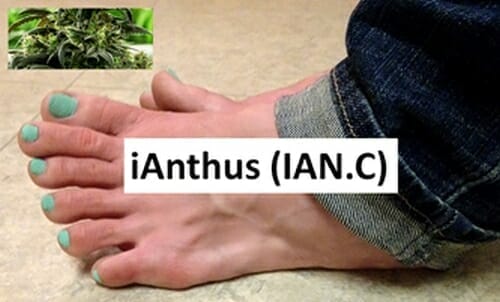For a large part of its early days, one of the main selling points of US multi state cannabis store operator iAnthus (IAN.C) was that it was seemingly run by adults. Unlike their colleagues at MedMen (MMEN.C), which revealed itself as a self-dealing executive wealth generator from day one, iAnthus painted a picture of experience, patience, and process.
In hindsight, that was, it appears, so much bullshit.
Perhaps one can blame an innate desire for someone to come along who really was an adult, to show the burgeoning cannabis industry how it should be done. Perhaps former CEO Hadley Ford really was a slick villain in a superhero costume, conning folks looking for a good guy. Either way, we at Equity.Guru fell for it as much as anyone did.
Yesterday, having been halted by the exchange for the last three weeks and counting, iAnthus announced it was refinancing its debt in a manner that leaves nothing of any consequence for retail shareholders.
iAnthus Capital Holdings Inc. has entered into a restructuring support agreement (as defined below) with 100 per cent of its secured lenders and over 91 per cent of the unsecured debentureholders to effect a proposed recapitalization transaction, as well as provide interim financing of $14-million (U.S.). All monetary values are in United States dollars unless otherwise stated.
What do shareholders get after all that is done?

Only if the recapitalization transaction is consummated through the arrangement proceedings, the existing holders at the time of completion of common shares will retain 2.75 per cent of the ownership of the common shares. If the recapitalization transaction is completed through CCAA proceedings, the existing shareholders will not receive a recovery and the common shareholder interest will instead be allocated equally as among the secured lenders and unsecured debentureholders.
2.75% – or less.
iAnthus had overextended itself with debt in an effort to keep up with the MedMen’s of the world over the last few years, slapping down and snapping up yet-to-be-profitable dispensaries across the US at inflated prices. The happy providers of that debt (and MedMen’s) were Gotham Green Partners, among others, whose bet was simple: Either the borrowers will repay their debt with high interest (a win), or they won’t, which would lead to the debt holders sucking up most of the company in an extended period of refinancing, restructuring, and pillaging (a bigger win).
To cure their growing debt situation, iAnthus had begun a process of trying to sell or even liquidate assets and, according to a Deep Dive article last month, the company was saying “there have been ‘several expressions of interest… which if completed, would repay the Secured Debentures in full and in cash.’”
This would seem like the perfect solution; Green Gotham gets its money paid back, shareholders retain value, the company moves forward.
But Gotham Green didn’t just want their money back, and they sure didn’t want to take over a money-losing chain of weed stores, so (with iAnthus having missed a couple of debt payments) GGP demanded repayment of the debt and interest in ten days, a period that was small enough that it effectively prevented anyone else from buying the assets.
That put IAN into a position where they had to negotiate with Gotham Green at the barrel of a gun. In essence, ‘we’re going to take everything you have, or you can do a deal that gives us almost everything, ongoing cash, and the tiniest sliver of value for shareholders, which you can’t refuse because you have a legal duty to the shareholders to take the best deal going, even if its for pennies.’
Today, shareholders hate iAnthus management, but while management absolutely got themselves into that jam, it’s Gotham Green’s decision to prolong their death while taking almost everything, including future payments, that really fucks investors over.
We wrote a lot about iAnthus early on, when it was challenging the US MSO ranks and vowing superior steering at the top. Indeed, they were a one-time client, back in 2018, and the period of our working together saw the stock rise from $3 to $7+ as they talked about ‘responsible growth.’ I personally sold my stake when it hit $5 on the way back down, around the time we completed our work together, considering the job well done for our readers.
But some didn’t sell. Some held strong, believing a downward trend would be short.
It wasn’t.
Looking back, there were warning signs, but they were largely obscured by the warning signs of 60 other companies pulling the same chicanery, or worse. Mounting debts can be found across the industry, from Aurora Cannabis (ACB.T) borrowing repeatedly to cover its earlier borrowing at the top, to Canopy Growth Corp’s (WEED.T) growing fealty to major stakeholder Constellation Brands (STZ.NYSE), to the recent James A Wagner bankruptcy at the bottom. Debt financing isn’t an inherently wrong practice, but when the terms of your debt leave you at risk of losing everything your shareholders own, and dictate more and more restructuring which sell off more and more rights to lenders, it’s a pretty risky and eventually shitty move.
Sadly, iAnthus didn’t collapse through incompetence or slow sales or the downward pull of sector tides and flu. IAN went down through the hubris of management and the profit-above-all-else mandate of private equity.
Some blame needs to go to investors, truth be told. A lot of people bought iAnthus cheap over the last six months, reasoning that, if all went to hell, at least the company would have assets that could be sold and shareholder value returned.
But, just as with several other cannabis entities that were passed in for pennies, once the debtholders have taken the keys to a Ravenquest or an Ascent or a James Wagner, what’s left for the shareholders is a shell. The arbitrage isn’t yours – it’s theirs.
After an extensive review and consultation process with its legal and financial advisers, the company’s board of directors concluded that the recapitalization transaction represents the best available alternative to improve the company’s capital structure and to maximize and preserve value for the company and its stakeholders.
Translated: ‘We had one offer on the table because that offer forced us into a spot where other offers couldn’t be considered, and because we have a legal obligation to shareholders, we had to say yes to 2.75% because that’s more than zero.’
The punchline in all this? iAnthus originally borrowed money from GGP to compete with MedMen, who themselves borrowed money from GGP to get ahead of iAnthus. Now, both companies are being ravaged for it.
Gross.
This wasn’t an unforeseeable accident, it was an accident in slow motion, with the driver of the overturning bus yelling, ‘everything is fine’, even as the oncoming train loomed. Former CEO Hadley Ford was saying, right up until the moment that his company couldn’t cover the vig and his sacking was announced, that his company was ‘never better.’ Ford also benefited from some loans given him by the company and fucked about in ways that the pocket stuffers at MedMen might have taken notes on, so history will judge him poorly.
The demise of iAnthus will hang around Ford’s neck forever more. He’ll never be called ‘respectable management’ again.
But if we’re honest about who the arch villain in this debacle is, it’s Gotham Green Partners, who’ll loan anyone cash if they’re dumb enough to take it, gambling that there’ll be an eventual default, and that they’ll make more on that default than on building an actual successful business. It’s a business model that appears to be working for them, but also advertises every company currently straddled with GGP debt as being another overturned bus slowly rolling into the path of the Gotham Express.
If you visit the GGP website, you’re not going to get a list of who they’ve loaned money to, because that information would be useful to investors, serving as a warning sign. There are no bios to point your rage at, no manner of adding your money to theirs – instead you get a big, empty page with a big empty logo.
They don’t care about you. They don’t need you. You are the mark and your money is their target.
We can say iAnthus should have been smarter. We can say GGP should be more of a partner than a predator. But we need to know going forward, this is a preface of things to come elsewhere, and in a much larger, painful fashion.
— Chris Parry
FULL DISCLOSURE: iAnthus is a former Equity.Guru marketing client








Will this recaptualization be approved? Has Canada approved this disaster. I have 110K in this stock.
Apologize for the tardy reply, it’s been crazy busy around here. It appears that the hearing is scheduled for September 23, 2021 as per a company news release on August 27th.
Pingback: License regulations in Florida, Massachusetts could impact high-stakes medical marijuana acquisition - FL Dispensaries
Pingback: License regulations in Florida, Massachusetts could impact high-stakes medical marijuana acquisition – CBD News Insider